
Find Help
More Items From Ergsy search
-

Are there vaccines for meningitis?
Relevance: 100%
-

Is vaccination recommended for seniors against meningitis?
Relevance: 87%
-

Who should get a meningitis vaccination?
Relevance: 87%
-

Is meningitis vaccination required for military recruits?
Relevance: 87%
-

Are adults over 25 recommended for meningitis vaccination?
Relevance: 85%
-

Does the CDC recommend meningitis vaccines for adolescents?
Relevance: 85%
-
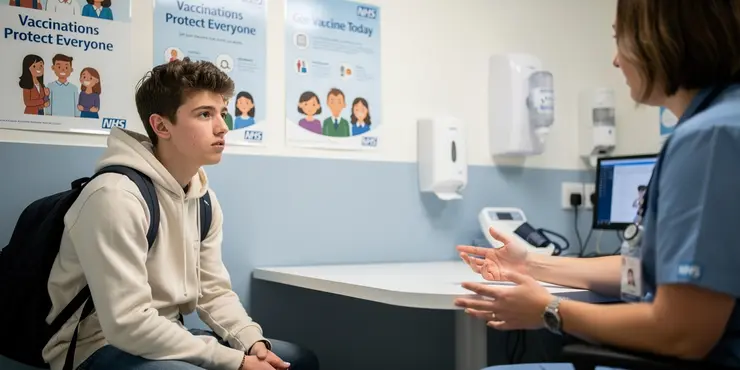
Should college students get the meningitis vaccine?
Relevance: 85%
-

Do international students need the meningitis vaccine?
Relevance: 84%
-

Are there any specific groups that should prioritize meningitis vaccination?
Relevance: 83%
-

Should health care workers get the meningitis vaccine?
Relevance: 83%
-

What are the guidelines for meningitis vaccination for HIV-infected individuals?
Relevance: 82%
-
What are the meningitis vaccination recommendations for travelers to Hajj or Umrah?
Relevance: 81%
-

Do people who have had meningitis in the past need to be vaccinated?
Relevance: 79%
-

Can meningitis be prevented?
Relevance: 74%
-
Is meningitis contagious?
Relevance: 74%
-

What is meningitis?
Relevance: 73%
-

How serious is bacterial meningitis?
Relevance: 68%
-

Why is meningitis a medical emergency?
Relevance: 68%
-
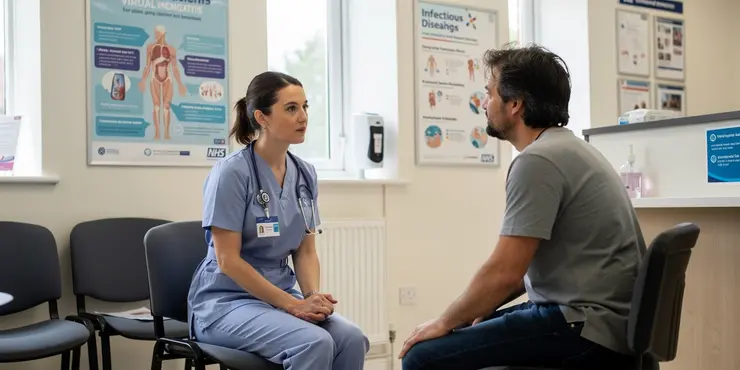
What causes viral meningitis?
Relevance: 68%
-

What are the main types of meningitis?
Relevance: 68%
-

What causes bacterial meningitis?
Relevance: 68%
-
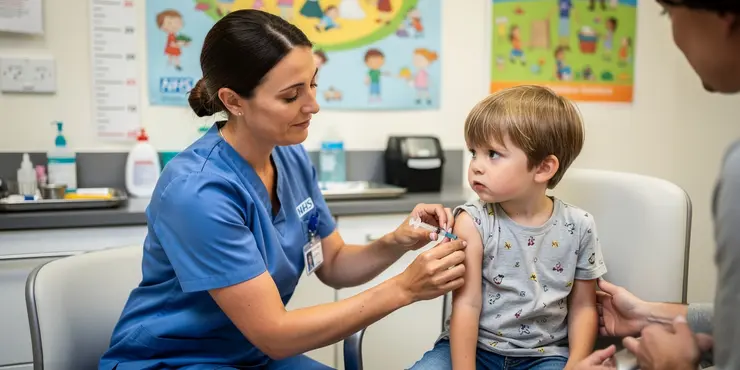
Who is at higher risk of contracting meningitis?
Relevance: 67%
-

How is viral meningitis spread?
Relevance: 67%
-

What is the treatment for bacterial meningitis?
Relevance: 67%
-

What is the prognosis for viral meningitis?
Relevance: 64%
-

What is non-infectious meningitis?
Relevance: 58%
-
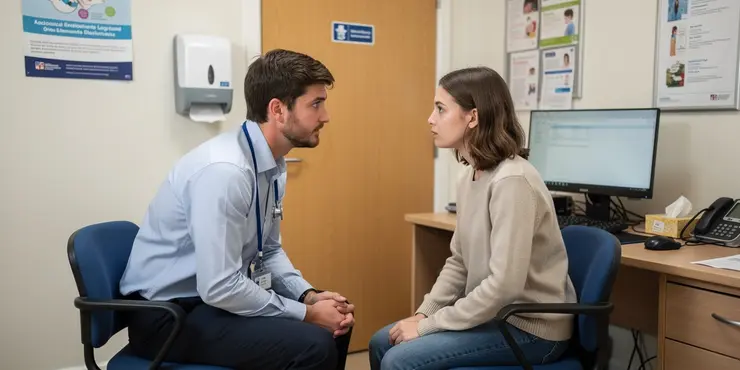
Can meningitis cause long-term complications?
Relevance: 58%
-

How is meningitis diagnosed?
Relevance: 58%
-
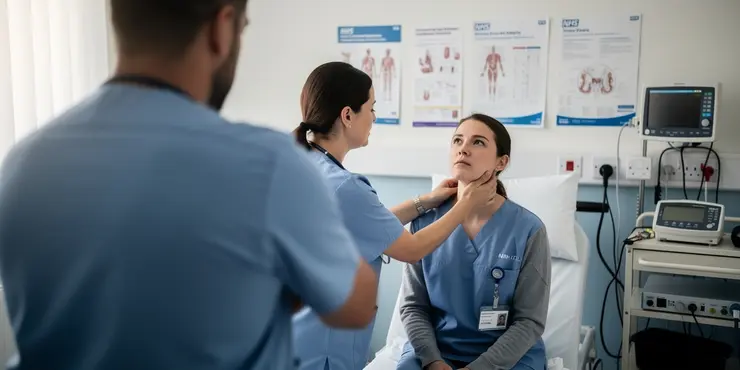
What are common symptoms of meningitis?
Relevance: 56%
-

What are the signs of meningitis in infants?
Relevance: 55%
-

How is fungal meningitis treated?
Relevance: 53%
-

At what age should children receive the meningococcal vaccine?
Relevance: 52%
-

Are infants recommended to receive the meningococcal vaccine?
Relevance: 50%
-

Can pregnant individuals receive the meningococcal vaccine?
Relevance: 49%
-

Is there a vaccine for gonorrhoea?
Relevance: 47%
-

What is the MMR vaccine?
Relevance: 46%
-

How effective is the MMR vaccine?
Relevance: 45%
-

Is there a different recommendation for the MenACWY and MenB vaccines?
Relevance: 42%
-

What is a subunit vaccine?
Relevance: 42%
-

Who is recommended to receive the meningitis vaccination?
Relevance: 41%
Are There Vaccines for Meningitis?
Meningitis is an inflammation of the protective membranes covering the brain and spinal cord, known as the meninges. It can be caused by infections of viruses, bacteria, or other microorganisms and can sometimes be life-threatening. Fortunately, vaccines are available to prevent certain types of meningitis, and they play a critical role in reducing the incidence of this serious illness.
Types of Meningitis Vaccines
In the UK, there are several vaccines available to protect against different causes of meningitis. These vaccines target the bacterial infections that are most prevalent and potentially dangerous. The main vaccines include the MenB vaccine, the MenACWY vaccine, the Hib vaccine, and the pneumococcal vaccine.
MenB Vaccine
The MenB vaccine offers protection against meningococcal group B bacteria, one of the most common causes of bacterial meningitis in the UK. This vaccine is typically given to babies as part of the NHS routine immunisation schedule, with doses given at 8 weeks, 16 weeks, and a booster at 1 year.
MenACWY Vaccine
The MenACWY vaccine provides protection against four strains of the meningococcal bacteria: A, C, W, and Y. It is commonly administered to teenagers and young adults, especially those in school years 9 or 10, and also to students entering university for the first time. This is due to the increased risk of meningitis among these age groups.
Hib Vaccine
The Hib vaccine protects against Haemophilus influenzae type b, a significant cause of bacterial meningitis in young children. This vaccine is usually given to infants as part of a combined vaccine that also protects against several other diseases and is part of the routine childhood immunisation schedule.
Pneumococcal Vaccine
The pneumococcal vaccine helps prevent infections caused by Streptococcus pneumoniae bacteria, which can lead to meningitis. The vaccine is administered to infants, older adults, and individuals with certain health conditions that put them at increased risk. It is also part of the UK routine childhood vaccination program.
Importance of Vaccination
Vaccination is a crucial strategy in preventing meningitis and its potential complications. Since the implementation of these vaccines, the incidence of bacterial meningitis has significantly decreased in the UK. It's essential for individuals, especially parents and young adults, to be aware of these vaccines and ensure they or their children are fully vaccinated according to the NHS schedule.
Conclusion
In conclusion, vaccines are an effective measure in the fight against meningitis. By following the recommended vaccination guidelines, individuals can protect themselves and their communities from the severe consequences of meningitis. For more information, individuals should consult their healthcare providers or visit the NHS website.
Are There Vaccines for Meningitis?
Meningitis is when the protective layers around the brain and spine, called meninges, become swollen. It can happen because of germs like viruses or bacteria. This can be very dangerous. But there are vaccines that can stop some kinds of meningitis. These vaccines help keep people safe from this illness.
Types of Meningitis Vaccines
In the UK, there are different vaccines to protect against meningitis. These vaccines help fight the bacteria that cause this disease. The main vaccines are called MenB, MenACWY, Hib, and pneumococcal vaccines.
MenB Vaccine
The MenB vaccine protects against a common bacteria that cause meningitis called group B. Babies usually get this vaccine through the NHS. They receive it at 8 weeks, 16 weeks, and then a booster at 1 year old.
MenACWY Vaccine
The MenACWY vaccine protects against four types of meningitis bacteria: A, C, W, and Y. Teenagers and young adults, like those in school years 9 or 10, usually get this vaccine. Students going to university for the first time also need it because they are more at risk.
Hib Vaccine
The Hib vaccine protects against a bacteria called Haemophilus influenzae type b. This bacteria can cause meningitis in young children. Babies get this vaccine as part of a combined shot that protects against several diseases.
Pneumococcal Vaccine
The pneumococcal vaccine helps fight infections from a bacteria called Streptococcus pneumoniae. This can lead to meningitis. Babies, older adults, and people with certain health issues get this vaccine. It is part of the UK routine childhood vaccination program.
Importance of Vaccination
Getting vaccinated is very important to prevent meningitis. Since vaccines started being used, fewer people get bacterial meningitis in the UK. It is important for everyone, especially parents and young adults, to know about these vaccines. They should make sure they or their children get all the vaccines recommended by the NHS.
Conclusion
Vaccines are a great way to fight against meningitis. By getting the vaccines, people can protect themselves and others around them from this serious disease. For more details, people should talk to their doctor or check the NHS website.
Frequently Asked Questions
What is meningitis?
Meningitis is an inflammation of the protective membranes covering the brain and spinal cord, known as the meninges.
Are there vaccines available for meningitis?
Yes, there are vaccines available to protect against some types of meningitis.
Which types of meningitis can be prevented by vaccines?
Vaccines are available for several types of meningitis, including those caused by Neisseria meningitidis, Streptococcus pneumoniae, and Haemophilus influenzae type b (Hib).
What is the meningococcal vaccine?
The meningococcal vaccine protects against Neisseria meningitidis, which is a leading cause of bacterial meningitis.
Who should receive the meningococcal vaccine?
It is recommended for preteens, teens, and young adults, as well as certain high-risk groups, such as those with specific medical conditions.
What are the common types of meningococcal vaccines?
The two main types are MenACWY and MenB vaccines, which protect against different strains of meningococcal bacteria.
What is the Hib vaccine?
The Hib vaccine protects against Haemophilus influenzae type b, a cause of bacterial meningitis in children.
At what age is the Hib vaccine given?
The Hib vaccine is typically given to infants starting at 2 months of age.
Can adults receive meningitis vaccines?
Yes, adults at higher risk, such as those with specific health conditions or travelers to certain areas, may need meningitis vaccines.
What is the pneumococcal vaccine?
The pneumococcal vaccine protects against Streptococcus pneumoniae, which can cause meningitis as well as other illnesses.
Who should get the pneumococcal vaccine?
It's recommended for children, older adults, and people with certain health conditions.
Are meningitis vaccines safe?
Yes, meningitis vaccines are generally safe and effective, with side effects being mild and temporary.
How are meningitis vaccines administered?
Meningitis vaccines are usually given as an injection in the arm.
Do meningitis vaccines provide lifelong protection?
Some vaccines may need booster doses for continued protection, particularly if the person remains at increased risk.
Are there any side effects of meningitis vaccines?
Common side effects include soreness at the injection site, mild fever, or fatigue.
How effective are meningitis vaccines?
Meningitis vaccines are highly effective at preventing illness caused by the bacteria they target.
Can meningitis be fully prevented by vaccines?
While vaccines greatly reduce the risk, they do not protect against all types of meningitis.
Are there any reasons to delay or avoid meningitis vaccination?
Vaccination should be delayed if the person is currently very ill, and it should be avoided in those who have had severe allergic reactions to vaccine components.
How often are meningitis vaccines updated?
Recommendations for vaccines are reviewed regularly and updated based on new research and data.
Is meningitis contagious?
Yes, bacterial meningitis can be contagious and is spread through close contact with an infected person's respiratory or throat secretions.
What is meningitis?
Meningitis is an illness.
It makes the brain and spinal cord swell up.
This can make you very sick.
If you think someone has meningitis, tell a doctor.
Use these to help understand:
- Ask someone to explain it to you.
- Look at pictures or videos about it.
- Listen to someone read about it.
Meningitis is when the coverings around your brain and spine get swollen. These coverings are called the meninges.
Can you get a vaccine to stop meningitis?
Yes, there are shots that can help stop some kinds of meningitis.
To understand better, you can talk to a doctor or nurse, or look at pictures. Remember to ask questions if you need more help.
What types of meningitis can vaccines stop?
Meningitis is an illness that makes the brain and spine swell. Some types of meningitis can be stopped with shots. Shots are also called vaccines. Ask your doctor about getting these shots. They can help keep you safe from getting sick.
There are shots to help protect you from different kinds of meningitis. These shots can keep you safe from germs like Neisseria meningitidis, Streptococcus pneumoniae, and Haemophilus influenzae type b (Hib).
What is the meningococcal vaccine?
The meningococcal vaccine is a shot. It helps stop a bad germ called meningococcus. This germ can make people very sick. The shot keeps you safe from this germ.
After the shot, your body can fight the germ better. It lowers the chance of getting sick.
If you find reading hard, a grown-up can read this to you. You can also look at pictures or videos about the vaccine. They can help you understand better.
The meningococcal vaccine helps keep you safe from a germ called Neisseria meningitidis. This germ can make you very sick by causing an illness called bacterial meningitis.
Who should get the meningococcal vaccine?
The meningococcal vaccine helps protect you from getting very sick. Here is who should get the vaccine:
- Teenagers and young adults.
- Kids over 11 years old should get it.
- People traveling to places where the disease is common.
- If you have certain health problems, ask your doctor.
If you need help understanding this, you can:
- Ask a doctor or nurse to explain it to you.
- Use pictures to learn more about the vaccine.
This is recommended for kids and young people, like preteens, teens, and young adults. It is also good for people who might need extra help, like those with certain health problems.
What kinds of meningococcal vaccines are there?
Meningococcal vaccines help stop a disease called meningococcal disease. There are a few kinds of these vaccines.
- MenACWY Vaccine: This vaccine protects against four types of meningococcal bacteria.
- MenB Vaccine: This one protects against one type of meningococcal bacteria.
If you find it hard to understand, ask a grown-up to explain it to you, or use images or drawings to help you remember the vaccines. You can also make a chart to keep track of them.
There are two main types of vaccines:
1. **MenACWY vaccine**: This shot keeps you safe from some types of bacteria.
2. **MenB vaccine**: This shot protects you from other types of bacteria.
These bacteria can make you very sick. The shots help keep you safe and healthy.
You can use pictures and videos to help you learn more about vaccines.
What is the Hib vaccine?
The Hib vaccine is a special medicine. It helps keep your body safe from bad germs. These germs can make you very sick. The vaccine stops the germs from hurting you.
Tips for Understanding:
- Read slowly and take breaks if you need to.
- Ask an adult or friend if you have questions.
- Look at pictures or videos about vaccines to learn more.
The Hib vaccine helps stop a bad germ called Haemophilus influenzae type b. This germ can make children very sick with a disease called bacterial meningitis.
When do you get the Hib vaccine?
Babies get the Hib vaccine. It helps them stay healthy. They usually get it at:
- 2 months old
- 3 months old
- 4 months old
- 12 to 13 months old
If you need help, ask your doctor or nurse. They can tell you when to get the vaccine. You can also use a calendar to keep track of vaccines.
Babies usually get the Hib vaccine when they are 2 months old.
Can grown-ups get shots for meningitis?
Yes, grown-ups can get shots to help stop them from getting meningitis. Meningitis is an illness that can make you very sick.
If you think you or someone you know might need this shot, go talk to a doctor. They can help you decide what is best.
Doctors and nurses can give these shots. Sometimes, adults need this shot before traveling or if they have certain health problems.
Ask questions if you need to, and bring someone with you to the doctor if it helps you feel better. Using pictures or videos can also help you understand more about the shots.
Yes, some grown-ups might need shots to keep them safe from meningitis. This is important if they have certain health problems or if they are traveling to some places.
What is the pneumococcal vaccine?
The pneumococcal vaccine is a shot that helps keep you from getting sick. It stops germs that can make you very ill, like giving you a fever or making it hard to breathe.
If you have questions or need help, you can ask a doctor or nurse. They can tell you more about this vaccine.
Here are some ways to help you understand:
- Look at pictures or videos about vaccines. They can help you see what happens.
- Use apps that read text aloud if you find reading hard.
- Talk with someone you trust who can explain it to you.
The pneumococcal vaccine helps protect you from getting sick. It stops germs called Streptococcus pneumoniae. These germs can make you very sick. They can cause a bad infection called meningitis and other illnesses.
To make reading easier, you can:
- Read with a friend or family member.
- Use a finger or a pen to follow the words.
- Take breaks if you feel tired.
- Ask someone if you do not understand a word.
Who should get the pneumonia shot?
Some people need a special shot to help prevent an illness called pneumonia. This shot is called the pneumonia shot.
You should get this shot if:
- You are a baby or a young child.
- You are 65 years old or older.
- You have certain health problems.
It is a good idea to talk to a doctor or nurse. They can help you know if you need the shot. Using pictures or asking someone to read with you can also help you understand.
This is good for kids, older people, and people with some health problems.
Is the meningitis shot safe?
Yes, meningitis shots are safe and they work well. Side effects are usually small and go away quickly.
How do people get meningitis vaccines?
Meningitis vaccines are given as a shot. A doctor or nurse puts a small needle in your arm to give the vaccine. It helps stop you from getting sick.
If you have any questions, you can use tools like asking a grown-up or using easy-read guides to learn more!
Meningitis vaccines are given with a needle in your arm.
Do meningitis vaccines protect you for your whole life?
Meningitis vaccines help protect you from getting sick. But they might not protect you forever. Sometimes you need more shots when you get older to stay protected.
If you have questions, ask a doctor or nurse.
Using pictures or making a list can help you understand this better.
Some vaccines need extra doses called boosters. These help keep you safe, especially if you are at more risk.
Do meningitis vaccines cause any problems?
Meningitis vaccines are safe for most people. But some people might have mild side effects. Here are some things you might feel:
- Your arm might hurt where you got the shot.
- You might feel a bit tired.
- You might get a headache.
- You might have a low fever.
These usually go away in a day or two. If you feel worried, tell an adult or a doctor.
Some tools that can help you understand more:
- Ask someone to read the information with you.
- Watch videos about vaccines to see how they help.
- Use apps that make reading easier.
Remember, vaccines help keep you healthy!
Some things that might happen are:
- Your arm could feel a bit sore where you got the shot.
- You might have a small fever.
- You could feel tired.
You can use tools to help you feel better. These include:
- Putting a cool cloth on your arm.
- Taking some rest if you feel tired.
- Having medicine like paracetamol if you have a fever.
How well do meningitis shots work?
Meningitis shots help stop people from getting sick with meningitis. They work well for most people.
Here are some ways to help understand better:
- Use picture charts to see how the shots work.
- Ask a grown-up to explain it with simple words.
- Watch a video about how vaccines protect you.
Meningitis shots work really well to stop people from getting sick from certain germs.
Can vaccines stop meningitis for good?
Vaccines can help stop some kinds of meningitis. But they can't stop all kinds. It's good to get the vaccine to stay safer.
Ask a doctor for advice on the best vaccines.
Vaccines help keep you safe, but they do not stop all kinds of meningitis.
Is it okay to wait or not get the meningitis shot?
If you are really sick right now, you should wait to get a vaccine. Do not get vaccinated if you have had a really bad allergic reaction to any part of a vaccine.
How often are meningitis vaccines changed?
Meningitis vaccines are medicine that helps stop people from getting sick with meningitis. Sometimes doctors and scientists need to change the vaccine to make sure it works well.
The meningitis vaccine is changed when needed. This can be because new types of meningitis germs are found.
If you want help to read and understand, you can:
- Ask someone to read with you.
- Use a reading tool that reads words out loud.
- Look for simple videos about meningitis vaccines.
Doctors check vaccine advice often. They change it when they learn new things.
Can you catch meningitis from someone?
Yes, you can catch bacterial meningitis from someone else. It spreads through close contact with things like their spit or when they cough or sneeze near you.
Useful Links
This website offers general information and is not a substitute for professional advice.
Always seek guidance from qualified professionals.
If you have any medical concerns or need urgent help, contact a healthcare professional or emergency services immediately.
Some of this content was generated with AI assistance. We’ve done our best to keep it accurate, helpful, and human-friendly.
- Ergsy carfully checks the information in the videos we provide here.
- Videos shown by Youtube after a video has completed, have NOT been reviewed by ERGSY.
- To view, click the arrow in centre of video.
- Most of the videos you find here will have subtitles and/or closed captions available.
- You may need to turn these on, and choose your preferred language.
- Go to the video you'd like to watch.
- If closed captions (CC) are available, settings will be visible on the bottom right of the video player.
- To turn on Captions, click settings .
- To turn off Captions, click settings again.
More Items From Ergsy search
-

Are there vaccines for meningitis?
Relevance: 100%
-

Is vaccination recommended for seniors against meningitis?
Relevance: 87%
-

Who should get a meningitis vaccination?
Relevance: 87%
-

Is meningitis vaccination required for military recruits?
Relevance: 87%
-

Are adults over 25 recommended for meningitis vaccination?
Relevance: 85%
-

Does the CDC recommend meningitis vaccines for adolescents?
Relevance: 85%
-

Should college students get the meningitis vaccine?
Relevance: 85%
-

Do international students need the meningitis vaccine?
Relevance: 84%
-

Are there any specific groups that should prioritize meningitis vaccination?
Relevance: 83%
-

Should health care workers get the meningitis vaccine?
Relevance: 83%
-

What are the guidelines for meningitis vaccination for HIV-infected individuals?
Relevance: 82%
-
What are the meningitis vaccination recommendations for travelers to Hajj or Umrah?
Relevance: 81%
-

Do people who have had meningitis in the past need to be vaccinated?
Relevance: 79%
-

Can meningitis be prevented?
Relevance: 74%
-
Is meningitis contagious?
Relevance: 74%
-

What is meningitis?
Relevance: 73%
-

How serious is bacterial meningitis?
Relevance: 68%
-

Why is meningitis a medical emergency?
Relevance: 68%
-

What causes viral meningitis?
Relevance: 68%
-

What are the main types of meningitis?
Relevance: 68%
-

What causes bacterial meningitis?
Relevance: 68%
-

Who is at higher risk of contracting meningitis?
Relevance: 67%
-

How is viral meningitis spread?
Relevance: 67%
-

What is the treatment for bacterial meningitis?
Relevance: 67%
-

What is the prognosis for viral meningitis?
Relevance: 64%
-

What is non-infectious meningitis?
Relevance: 58%
-

Can meningitis cause long-term complications?
Relevance: 58%
-

How is meningitis diagnosed?
Relevance: 58%
-

What are common symptoms of meningitis?
Relevance: 56%
-

What are the signs of meningitis in infants?
Relevance: 55%
-

How is fungal meningitis treated?
Relevance: 53%
-

At what age should children receive the meningococcal vaccine?
Relevance: 52%
-

Are infants recommended to receive the meningococcal vaccine?
Relevance: 50%
-

Can pregnant individuals receive the meningococcal vaccine?
Relevance: 49%
-

Is there a vaccine for gonorrhoea?
Relevance: 47%
-

What is the MMR vaccine?
Relevance: 46%
-

How effective is the MMR vaccine?
Relevance: 45%
-

Is there a different recommendation for the MenACWY and MenB vaccines?
Relevance: 42%
-

What is a subunit vaccine?
Relevance: 42%
-

Who is recommended to receive the meningitis vaccination?
Relevance: 41%


